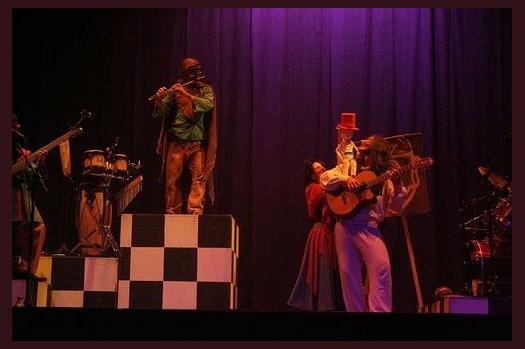 Casa de Orates
Casa de Orates
Casa de Orates: The Enigmatic Samba Trio Behind "Samba no Escuro"
Origins and Formation:
In the heart of Rio de Janeiro's bustling bohemian scene, three distinct musicians converged in the late 1990s to form Casa de Orates. The trio consisted of:
- Otto: A charismatic vocalist and multi-instrumentalist known for his soulful voice and experimental compositions.
- Domenico Lancellotti: A virtuoso guitarist with an uncanny ability to blend traditional Brazilian rhythms with contemporary influences.
- Marcelo Costa: A skilled percussionist who brought an infectious groove and rhythmic complexity to their music.
Artistic Style and Influences:
Casa de Orates' music defied easy categorization. They fused elements of samba, rock, jazz, and electronic music, creating a unique and captivating sound. Their lyrics often explored themes of love, loss, and the complexities of human existence.
Challenges and Controversies:
The band's eclectic style and unconventional approach to music drew both admiration and criticism. Their performances were often characterized by a raw and intense energy, which some critics found abrasive. Additionally, their outspoken lyrics, which tackled sensitive social and political issues, sometimes generated controversy.
Discographic Journey:
Casa de Orates released a series of critically acclaimed albums throughout their career, including:
- "Casa de Orates" (2000): Their debut album, which introduced their distinct musical fusion.
- "Filosofia de Botequim" (2002): A masterpiece that showcased their lyrical depth and instrumental virtuosity.
- "O Samba no Escuro" (2004): The album that catapulted them to international fame, featuring the iconic title track.
"Samba no Escuro": A Global Hit
The song "Samba no Escuro" became a global anthem, capturing the essence of the band's unique blend of traditional and modern Brazilian music. Its haunting melody, infectious rhythms, and evocative lyrics resonated with audiences worldwide.
Legacy and Influence:
Casa de Orates disbanded in 2010, leaving behind a legacy of groundbreaking music and lasting impact. Their innovative approach to samba and their fearless exploration of diverse influences continue to inspire and influence contemporary Brazilian musicians.
Origins and Formation:
In the heart of Rio de Janeiro's bustling bohemian scene, three distinct musicians converged in the late 1990s to form Casa de Orates. The trio consisted of:
- Otto: A charismatic vocalist and multi-instrumentalist known for his soulful voice and experimental compositions.
- Domenico Lancellotti: A virtuoso guitarist with an uncanny ability to blend traditional Brazilian rhythms with contemporary influences.
- Marcelo Costa: A skilled percussionist who brought an infectious groove and rhythmic complexity to their music.
Artistic Style and Influences:
Casa de Orates' music defied easy categorization. They fused elements of samba, rock, jazz, and electronic music, creating a unique and captivating sound. Their lyrics often explored themes of love, loss, and the complexities of human existence.
Challenges and Controversies:
The band's eclectic style and unconventional approach to music drew both admiration and criticism. Their performances were often characterized by a raw and intense energy, which some critics found abrasive. Additionally, their outspoken lyrics, which tackled sensitive social and political issues, sometimes generated controversy.
Discographic Journey:
Casa de Orates released a series of critically acclaimed albums throughout their career, including:
- "Casa de Orates" (2000): Their debut album, which introduced their distinct musical fusion.
- "Filosofia de Botequim" (2002): A masterpiece that showcased their lyrical depth and instrumental virtuosity.
- "O Samba no Escuro" (2004): The album that catapulted them to international fame, featuring the iconic title track.
"Samba no Escuro": A Global Hit
The song "Samba no Escuro" became a global anthem, capturing the essence of the band's unique blend of traditional and modern Brazilian music. Its haunting melody, infectious rhythms, and evocative lyrics resonated with audiences worldwide.
Legacy and Influence:
Casa de Orates disbanded in 2010, leaving behind a legacy of groundbreaking music and lasting impact. Their innovative approach to samba and their fearless exploration of diverse influences continue to inspire and influence contemporary Brazilian musicians.